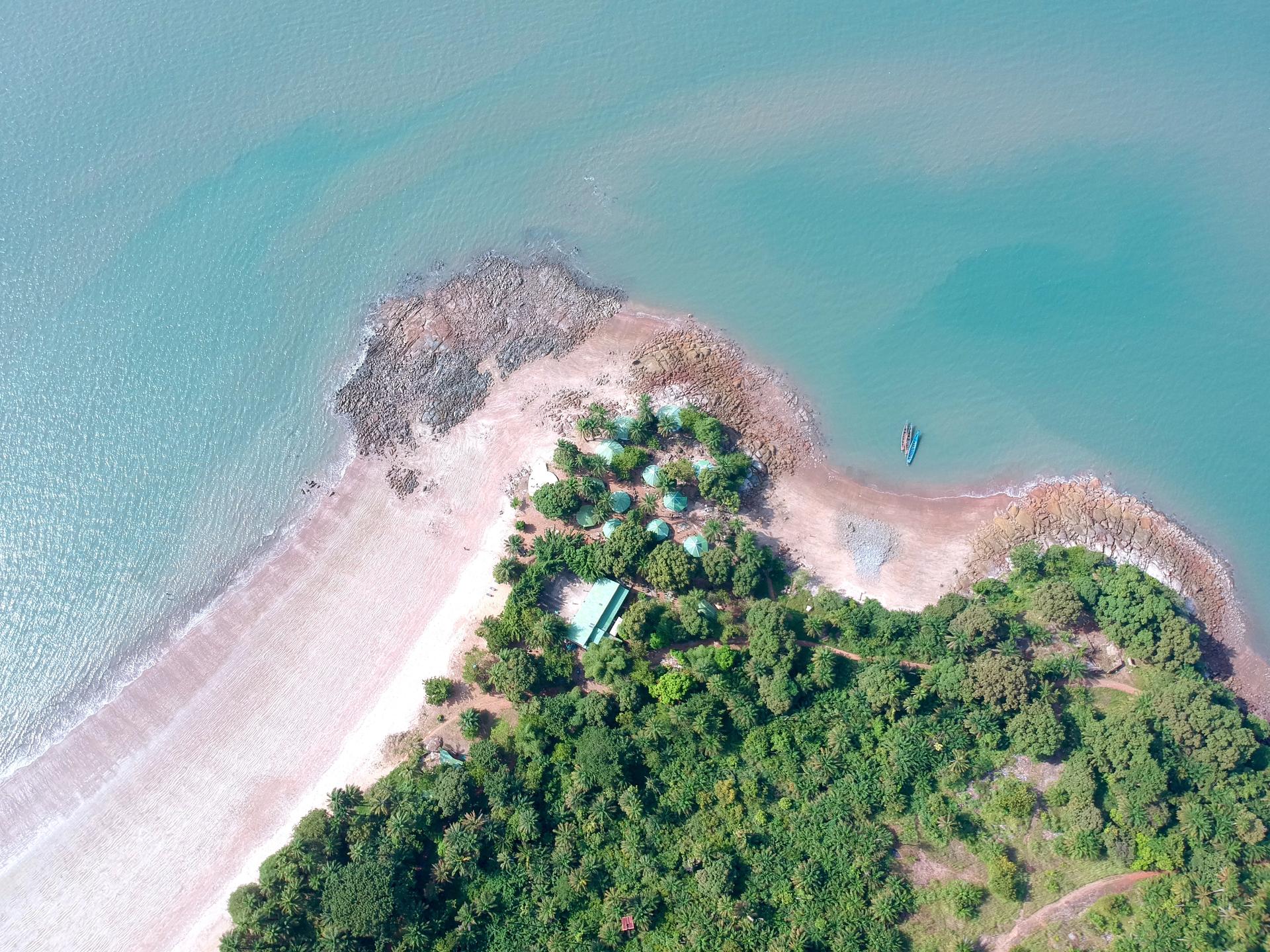Equatorial Guinea🇬🇶

Equatorial Guinea, located on the west coast of Central Africa, is nestled between Cameroon to the north, Gabon to the south and the Gulf of Guinea to the west. It is the only African country where Spanish is an official language. Equatorial Guinea is known for its exquisite natural beauty, especially its untouched beaches on Bioko Island. It is also unique for housing the black sand beaches at Arena Blanca and Moca, and the Monte Alen National Park, a home to diverse wildlife including elephants, chimpanzees, and gorillas. The Spanish colonial architecture prevalent in Malabo, the capital city, is another significant attraction.
⚠️Things you should avoid⚠️
- Avoid drinking tap water. Although it is treated, it may still contain harmful bacteria and parasites.
- Avoid places known for criminal activities, particularly at night.
- Avoid political demonstrations or gatherings, as they may turn chaotic and escalate into violence.
- Avoid any involvement in corruption as it's a serious problem and could land you in legal troubles.
- Avoid travelling during the rainy season (June-September) due to increased risk of tropical cyclones and flooding.
- Avoid handling or coming into close contact with wild animals to protect yourself from diseases.
- Avoid casual relationships due to the high prevalence of HIV/AIDS.
- Avoid travelling without valid identification documents as police checks are common.
- Avoid consuming street food if sanitation seems questionable.
- Avoid certain behaviours disrespectful to local customs and traditions, like inappropriate dressing or public display of affection.
Overall
5
Crime 🔫
5
Crime rates in Equatorial Guinea are relatively moderate. Petty crimes like pickpocketing, purse snatching and burglary are common in city areas like Bata and Malabo. However, violent crimes are relatively rare.
Terrorism 💣
8
Equatorial Guinea has not historically suffered significant terrorist attacks. The government maintains a strict control over the security, reducing the risk of such incidents.
War ⚔️
10
Equatorial Guinea has not been involved in any recent wars or conflicts. The country maintains stable relations with neighboring countries.
Natural Disasters 🌊
7
The country occasionally faces natural disasters such as tropical cyclones and flooding particularly during the rainy season. In 2019, heavy floods caused significant damage in Bata and parts of the mainland region.
Medical Care 🏥
4
Medical facilities in Equatorial Guinea are critically under-resourced. The country relies heavily on international aid for healthcare. Emergency services are limited and serious medical conditions often require evacuation.
Tap Water Quality 💧
2
Tap water in Equatorial Guinea is often not potable. Use of bottled water for drinking and cooking is highly recommended.
Disease Burden 🤒
4
Equatorial Guinea has a significant prevalence of diseases such as malaria, tuberculosis and HIV/AIDS. The country has implemented various programs to combat disease burden.
Corruption 💸
2
Corruption is a serious problem in Equatorial Guinea. The country ranks high on Transparency International's Corruption Perceptions Index. There have been numerous corruption scandals particularly related to oil revenues, with the latest involving the country's vice president in 2020.
Safety for Women ♀️
6
While Equatorial Guinea generally maintains a considerable degree of safety for women, some instances of gender-based violence and discrimination are reported. Most cities are safe to travel to during the day, however, it's advisable for women to take precautions, especially at night.
Safety for Queer People 👬
3
Equatorial Guinea lacks legal protections for LGBTQ+ individuals, which results in marginalization and discrimination, making the country potentially challenging for queer individuals.
Censorship 📺
2
Equatorial Guinea has rigid controls over media and the internet. Reporters Without Borders has highlighted that journalists and bloggers are subject to harassment and arrest.
Public Transportation 🚌
6
Public transportation in Equatorial Guinea lacks organized infrastructure but is relatively safe with few reported incidents. Most people prefer to use taxis or private vehicles for transportation.
Other useful information
🔒 How safe is it?
Overall, Equatorial Guinea is a moderately safe country. The government ensures safety of its citizens to a certain extent. However, the issues of corruption and lack of medical facilities remain problematic. It's important to conduct ample research and take safety precautions when planning to visit Equatorial Guinea.
🏰 Embassies in this Country
Several countries have their embassies in the capital city, Malabo, including Spain, France and United States.
💉 Recommended Vaccinations
Travelers to Equatorial Guinea are recommended to have vaccinations for routine diseases as well as Hepatitis A, Typhoid, Yellow Fever, Rabies and Malaria.
🐍 Dangerous Animals
Alligators, python snakes, and numerous species of venomous spiders are some of the dangerous animals in Equatorial Guinea. While attacks are rare, caution around wilderness areas is advised.
🛂 Visa Requirements
Most nationalities need a visa to enter Equatorial Guinea. Some countries have visa-free or visa-on-arrival policies with Equatorial Guinea, such as United States and China.
💲 Currency
The official currency is the Central African CFA franc. It’s suggested to carry cash for small transactions.
💳 Credit Card Acceptance
Credit cards are widely accepted in hotels and restaurants in larger cities. However, cash is preferred in remote areas.
🧑🏭 Is it possible to work and travel in this country?
Work and travel opportunities in Equatorial Guinea are quite limited due to the lack of a tourist industry and the country's strict work permit regulations.
💵 Cost of Travel and Living
Cost of living in Equatorial Guinea is significantly high, due to its high GDP per capita compared to its neighboring countries, primarily driven by its oil production.